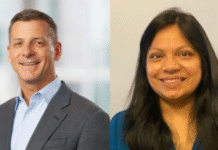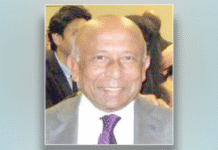Pressing need for proactive global response
An air of gloom overwhelmed sensitive people of the world who felt a stab of pathos as searing agony engulfed them when they watched the three-year-old Syrian boy Aylan Kurdi lying face-down in the sand. Words connoting sadness, laced with phrases arousing passion, fail to express the enormity of bereavement of the toddler’s parents who will suffer inconsolable grief throughout the rest of their life.
Lady photographer Nilufer Demir, who took the heart-breaking picture of Aylan Kurdi that shocked the world, was on the beach near Bodrum, Turkey, to make the child’s story heard. “When I saw Aylan, I was petrified. He was lying lifeless face down in the surf, in his red T-shirt and dark blue shorts folded to his waist. I told myself that I could bear witness to the plight of these people,” she said. After moving between various towns to escape Islamic State of Iraq and Syria (ISIS), his family settled in Turkey for three years, and then returned to Kobani in early this year, but returned to Turkey in June 2015 when ISIL attacked Kobanî again. Finally Abdullah Kurdi, 40, father of decided to move to Europe, which ended in tragedy when the inflatable rubber boat his family had boarded capsized.
According to a top UN official’s statement dated 09 September 2015, the UNHCR estimates 850,000 Mediterranean refugees by next year. The United Nations’ top official in charge of migration said the crisis rocking Europe needs a “global response”, insisting that countries worldwide must be asked to do their share.
“We should have a European response as part of a global response,” UN Special Representative for Migration and Development Peter Sutherland told reporters in Geneva, hinting at the need for an international conference “where every country is held up to the spotlight.”
In a preliminary emergency appeal document published yesterday, the UN refugee agency expects the number of refugees fleeing across the Mediterranean to Europe to hit 400,000 this year and could be 450,000 or more in 2016.
Two great sages of the century—-Noam Chomsky and Edward Said—-have dispassionately analysed the roots of Middle East Crisis and the flawed and inconsistent US foreign policy. Although Americans took an interest in the Arab world after huge petroleum deposits were discovered in the 1930s, Said said, antagonism between the two grew because Arabs became known in the U.S. mainly for being opposed to the state of Israel. [Washington Report on Middle East Affairs, “Edward Said Addresses 9/11 Issues at Chapman University May 2002”, http:// www. wrmea.org/2002-may/edward-said-addresses-9/11-issues-at-chapman-university.html]
After the 1967 war, Said added, popular conceptions of Muslims as addicted to all evils and a permanent war against infidels became accepted in America. Said recalled his own encounter with the ridiculous heights to which this animosity rose after his publisher asked him to prepare a list of Third World authors whose works might be translated into English. Many of the writers he suggested were accepted, Said said, but when he questioned the exclusion of Egyptian writer Naguib Mahfouz he was told that Mahfouz’s “works are in Arabic and Arabic is a controversial language.” Another absurdity Said pointed out was an American commentator’s asking the Israeli ambassador to the U.S. if Mahfouz’s having been awarded the Nobel Prize for literature was objectionable. [Ibid]
Since the end of the Cold War, Said continued, the U.S. has been the most important force in the Arab world because of its concerns that a steady flow of oil to the West be maintained. Since 1967, however, he emphasized, Israel has occupied Palestinian territory—a fact universally condemned outside the U.S. Nonetheless, Washington continues to subsidize this occupation—which as of this year, he noted, is the longest military occupation in modern history.
The family of Aylan Kurdi had come from Kobani, fleeing along with hundreds of thousands of others. A long-drawn-out siege by the Islamic State of Iraq and Syria (ISIS) and a concentrated US bombing campaign have left the northern Syrian city in ruins. His distressed father, the family’s sole survivor, said he would return to Syria with their bodies, telling relatives that he hoped only to die and be buried alongside them.
But what of the US? American politicians and the US media are deliberately silent on Washington’s central role in creating this unfolding tragedy on Europe’s borders.
Last week the Washington Post in an editorial last week stated that Europe “can’t be expected to solve on its own a problem that is originating in Afghanistan, Sudan, Libya and—above all—Syria.” The New York Times sounded a similar note, writing: “The roots of this catastrophe lie in crises the European Union cannot solve alone: war in Syria and Iraq, chaos in Libya…”
“What, in turn, are the “roots” of the crises in these countries which have given rise to this “catastrophe”? The response to this question is only guilty silence”, comments a World Socialist Web Site columnist, adding, “Together they are responsible for what is unfolding on Europe’s borders, which, more than a tragedy, is part of a protracted and continuing war crime.
UN Special Representative for Migration and Development Peter Sutherland also insisted on a system to evaluate who constitutes a refugee that is consistent across all nations, noting that at present, different countries are using different criteria.
We agree with his assertion and are in accord that a much more proactive response by the international community is needed.
Source: Weekly Holiday









